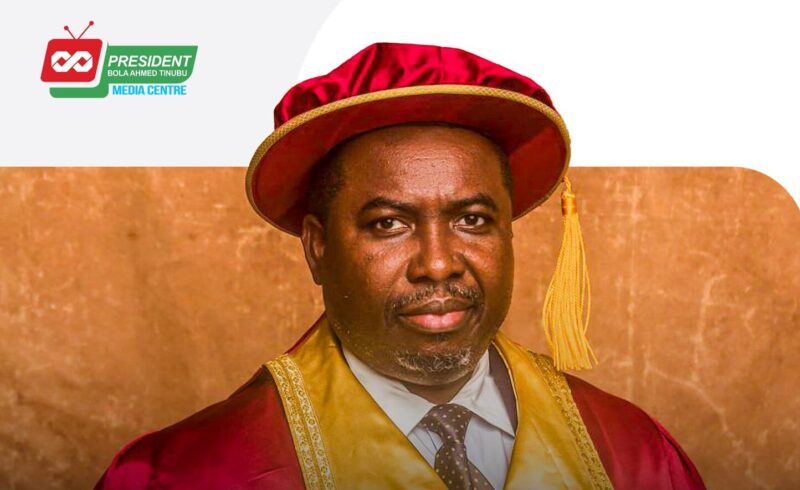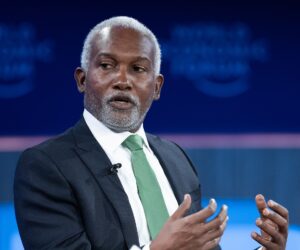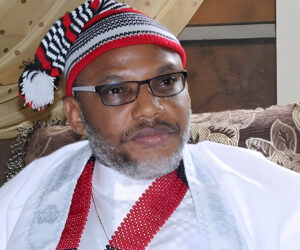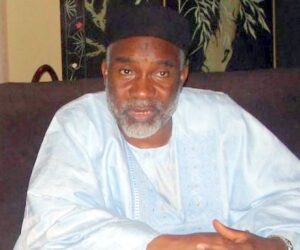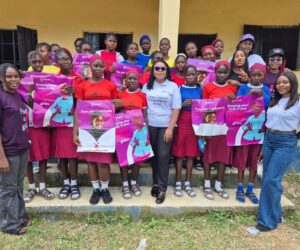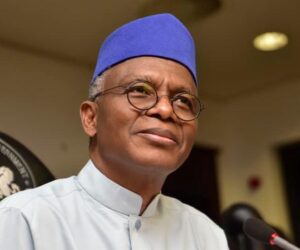Civil Society Organisations (CSOs) working on democracy and elections in Nigeria and across Africa have called on the Nigerian Senate to ensure a transparent and credible screening process for the newly appointed chairperson of the Independent National Electoral Commission (INEC), Joash Amupitan.
The CSOs made the call in a joint statement on Friday.
The organisations that endorsed the statement are Yiaga Africa, Women’s Rights Advancement and Protection Alternative (WRAPA), International Press Center (IPC), The Kukah Centre, Centre for Media and Society, TAF Africa, African Centre for Leadership, Strategy & Development (Centre LSD), Nigeria Women Trust Fund, Accountability Lab Nigeria, and YERP Naija Campaign.
They urged the Senate to televise the screening and allow public participation through memoranda and petitions.
“We call on the Senate to ensure that its confirmation hearings are transparent, televised, and inclusive of citizen and civil society input through memoranda, petitions, and participation in the confirmation hearings,” they said.
The CSOs also advised lawmakers to conduct a thorough examination of the nominee’s competence, integrity, and vision for electoral reform.
“The Senate should undertake a rigorous examination of his competence, public records, vision for electoral reform, INEC’s institutional strengthening, as well as his capacity to resist political interference and uphold electoral integrity.
“The Senate should also interrogate the nominee’s plans to address systemic challenges, including voter registration, result transmission, and enforcement of INEC’s regulations and guidelines.”
President Bola Tinubu had on Thursday appointed Mr Amupitan, a Senior Advocate of Nigeria (SAN) and professor of law at the University of Jos, as INEC Chair following ratification by the National Council of State.
His appointment is, however, subject to Senate confirmation as required by Section 154 of the Constitution.
Mr Amupitan, who specialises in Company Law, Law of Evidence, Corporate Governance, and Privatisation Law, was conferred with the rank of SAN in September 2014.
He succeeds Mahmood Yakubu, also a professor, who served as INEC Chairperson from 2015 to October 2025. Mr Yakubu handed over to May Agbamuche-Mbu, the most senior National Commissioner, on Tuesday.
If confirmed, Mr Amupitan will become the 13th substantive INEC Chair since Nigeria’s independence in 1960. His predecessors include Eyo Esua (1964–1966), Michael Ani (1976–1979), Victor Ovie-Whiskey (1980–1983), Eme Awa (1987–1989), Humphrey Nwosu (1989–1993), Okon Uya (1993), Sumner Dagogo-Jack (1994–1998), Ephraim Akpata (1998–2000), Abel Guobadia (2000–2005), Maurice Iwu (2005–2010), Attahiru Jega (2010–2015), and Mahmood Yakubu (2015–2025).
No objection
While expressing no objection to the nominee’s credentials, the CSOs emphasised the need for independence and moral courage in leading the electoral body.
“We acknowledge Professor Amupitan’s academic and professional accomplishments; therefore, we have no objection in principle to his nomination. However, the current state of Nigeria’s electoral process requires a fiercely independent INEC, immune to political manipulation, and unwavering in its commitment to credible elections. Consequently, as the next INEC Chairman, if confirmed by the Senate, he must demonstrate moral courage and resistance to political interference. INEC works better when it is insulated from political interference.”
Read the full statement by the CSOs
Civil Society Statement on the Nomination of Professor Joash Amupitan (SAN) as INEC Chairman
Abuja, October 10, 2025
We, the undersigned civil society organizations working on democracy and elections in Nigeria and across Africa, acknowledge the announcement by the Presidency on the nomination of Professor Joash Ojo Amupitan (SAN) as Chairman of the Independent National Electoral Commission (INEC), following the conclusion of Professor Mahmood Yakubu’s tenure. This comes after consultation with the Council of State, which reportedly granted unanimous approval to his nomination. We must, however, note that the Council of State approval does not replace the duty of the Nigerian Senate to conduct due diligence through rigorous and transparent screening process that inspires public trust. We reiterate our longstanding call for a transparent, inclusive and citizens-centered appointment process that is consistent with the recommendations of key electoral reform interventions like the Justice Uwais Report, Ken Nnamani committee report, and the Citizens Memorandum on Electoral Reforms.
Our Position
We acknowledge Professor Amupitan’s academic and professional accomplishments; therefore, we have no objection in principle to his nomination. However, the current state of Nigeria’s electoral process requires a fiercely independent INEC, immune to political manipulation, and unwavering in its commitment to credible elections. Consequently, as the next INEC Chairman, if confirmed by the Senate, he must demonstrate moral courage, and resistance to political interference. INEC works better when it is insulated from political interference.
Our Call to Action
We call on the Senate to ensure that its confirmation hearings are transparent, televised, and inclusive of citizen and civil society input through memoranda, petitions and participation in the confirmation hearings.
The Senate should undertake a rigorous examination of his competence, public records, vision for electoral reform, INEC’s institutional strengthening, as well as his capacity to resist political interference and uphold electoral integrity.
ALSO READ: EXCLUSIVE: What INEC Chairman, Mahmood Yakubu, told Tinubu in resignation letter
The Senate should also interrogate the nominee’s plans to address systemic challenges, including voter registration, result transmission, and enforcement of INEC’s regulations and guidelines.
Nigerians expect the Senate confirmation process to be open to citizens’ participation in line with the Framework for Citizens Engagement in the INEC Appointment Process previously submitted to the Senate by the undersigned civil society organizations.
This includes full disclosure of the nominee’s credentials, public service history, and capacity to manage elections without political interference.
Signed.
Yiaga Africa
Women Rights Advancement Protection Alternative (WRAPA)
International Press Center
The Kukah Centre
Center for Media and Society
TAF Africa
African Centre for Leadership, Strategy & Development (Centre LSD)
Nigeria Women Trust Fund
Accountability Lab, Nigeria
YERP Naija Campaign

